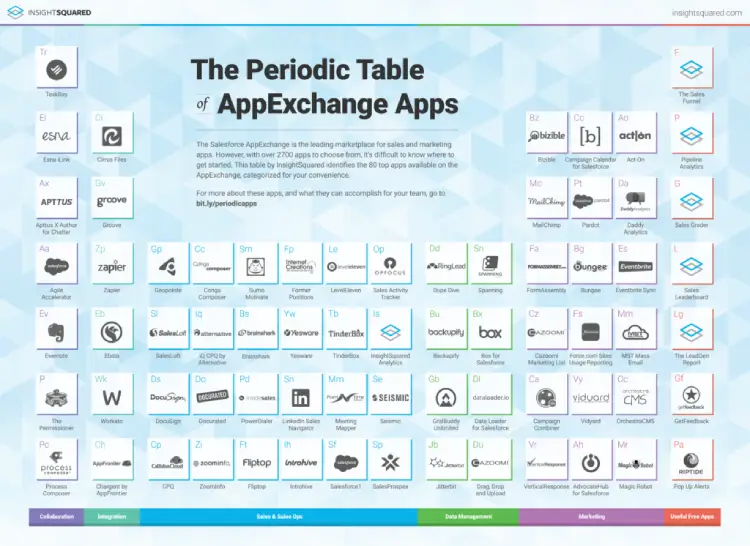
The question is, does Salesforce live up to its hype? It’s a good question, with the answer depending on the customer.
The customer needs to decide how much they invest in marrying business strategy to the tool, how much is invested into long term governance and long term innovation, and how much they invest in change management.
That’s what Vera Loftis, Managing Director at Bluewolf in London, said to CBR about the customer adoption of Salesforce.

Bluewolf has made its name as being a trusted advisor for companies looking to adopt and manage their Salesforce deployments and in the past year it has had its hands full dealing with acquisitions and numerous product developments.
At the end of March this year it was revealed that IBM would buy the 15 year old business, a move which added to the growing number of acquisitions around the Salesforce consultancy partner ecosystem.
The move could prove to be a beneficial one for IBM but the dust is still settling and the two companies are still figuring out what the future looks likes together, how they pool their resources, how much either side can adopt, and in what time frame.
For Bluewolf the mission remains the same regardless of the acquisition; to understand what business outcomes are trying to be achieved and to achieve them.
Salesforce customers have had plenty to take in as the CRM company invests in acquiring multiple businesses such as Demandware, Quip, Gravitytank, and Coolan. All of which will serve a purpose in the grand scheme of things, as long as the company sticks to its core message.
Loftis said that Salesforce has done well to avoid becoming too big, in terms of not offering a cornucopia of different products and services that don’t fit together.
“They are very purposeful with how they integrate things into the platform. So when Salesforce goes to market and says we have a customer platform, those things are actually on a platform versus other technologies that are a literal Chinese menu of different technologies and tools, which yes integrate and fit together nicely, but Salesforce has purposely said we are offering our customers a product and that product is Salesforce,” said the MD.
What the company has done is to stick to its conceptual story. It is a CRM company and its acquisitions are designed to fit into that story so there are not a lot of disparate choices – it is a platform.
However, as Salesforce grows, in part due to its acquisitions and partly due to technological innovation, it increases the complexity of the conversations that someone like Bluewolf has with its customers.

Loftis said: “I think for customers the rate at which Salesforce is growing, Salesforce is acquiring, the AppExchange is growing, it can be a very daunting place. I think it puts a big onus on us to be that trusted advisor.”
While the growing Salesforce portfolio presents its own challenges, one of the most common difficulties concerns data, which is why Bluewolf has a lot of conversations about data strategy rather than just Salesforce strategy.
Some companies are good at understanding that Salesforce is underpinned by data, and some are looking at the process side of things and then marrying the data up, the MD said.
But that isn’t the right way to do it.
Find out what is the right way on the next page.
Loftis said: “Really in a perfect situation you want to be doing both in parallel because you can build the world’s greatest system, have all the bells and whistles, it could make coffee, but if the underlying data isn’t accurate, it isn’t clean, it’s actually not the right kind of data – you’re not going to get out of it what you think.”
To remedy this Loftis said they advise to start with the data piece early on. That means getting the data, but also analysing it and seeing what the data is.
“So it’s an iterative process almost like building a system is, it’s not just a onetime migration then I go live. I think people are really starting to understand that concept,” she said.
One of the hardest trends in the area of data that Loftis experiences is to do with Business Intelligence tools.
“I think the BI conversation is difficult because it’s a really hard one to pin down in terms of requirements. Obviously everyone wants this data and in a visual method where they can interpret it, quickly on the go real-time,” she said.
The questions that need to be asked are things like whether or not a data warehouse is required? Is it just data from Salesforce being serviced? The conversation is then broken down, but it’s complex to choose the right tool.
The problem is that data analytics means so many different things to different people, for some it can mean simply a pie chart, for others it is precise algorithms that are analysing the data in real time.
Again it is the challenge of the company to figure out what the desired goals are for the business and advising them what would be best.
This challenge isn’t made any easier by the vast amount of options available in the market, and Salesforce offers its own analytics with Wave, so sometimes the answer is likely to be simply to make the customer aware of a product that Salesforce offers.
What this highlights is the complexity created by acquisitions and the rapid expansion of a platform; Salesforce now offers so much that there comes the issue of product visibility.
That is where a consultancy firm like Bluewolf comes in. As Salesforce continues to expand and continues to be a core piece of the puzzle for CRM operations, the consultancy firm will remain relevant and in high demand.






